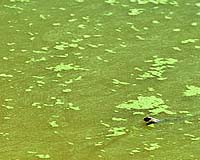 |
Mumbai (AFP) Sept 15, 2009 It's a question that has left the best minds in India scratching their heads: how to harvest the coconut crop when no one either wants or knows how to climb trees any more. But officials in Kerala, the southern agricultural state famed for laid-back tourism at its tropical beaches, are hoping new technology can be harnessed to solve the problem. They have announced a six-month competition for engineers to design a mechanical coconut harvester. "If they win, we will give them one million Indian rupees (21,000 dollars)," the state government's principal secretary for industries, T. Balakrishnan, told AFP by telephone. "If the design is interesting and doable, we will help them to commercially produce the machines in Kerala." India is one of the world's leading coconut suppliers, producing some 13 billion coconuts every year, as well as a variety of by-products like coconut oil and coir, used to make matting or treat soil. The industry generates between sixty billion and eighty billion rupees every year, according to India's Coconut Development Board, based in Kerala's commercial hub, Kochi. Kerala itself has 7.9 million hectares (20 million acres) of coconut tree plantations that thrive on its sandy soil and warm, humid weather and produced a massive 5.6 billion coconuts in 2007-08. Some 3.5 million families are involved directly or indirectly in the industry. But socio-economic changes linked to economic growth, as well as the risks involved in climbing trees up to 30 metres (100 feet) high, mean the industry has to adapt, says Balakrishnan. Traditionally, members of the low-caste Paravan clan were responsible for plucking coconuts, with fathers passing on the skill of shinning up tree trunks to their sons. "The problem we're facing today is that we're not getting people to do the harvesting of coconuts as we used to," Balakrishnan explained. "There are fewer numbers of children. They are more educated and it's not a glamorous job." Thomas Mathew, chief marketing officer at the Coconut Development Board, agreed. "The six to eight harvests a year are done manually by climbing, but lifestyle changes and the increase in the per capita income of people in Kerala have meant traditional climbers, the second generation, is not coming. "That's the main issue." The average wage of a coconut picker -- about 300 rupees a day -- has risen threefold in just a few years because of a shortage of willing volunteers, he added. Although that is more than the average labourer's daily wage, it falls well short of salaries for educated white-collar workers in other jobs in tourism and financial services, which are now flourishing in Kerala. Balakrishnan accepted that a mechanical solution -- and the prize money on offer -- would be capital intensive. But he said it would prove safer and more economical in future. "What we're looking at is a machine that can be used by families and large plantations. It should be very easy to use as we want to make it operational by everyone, even women and old people," he said. Share This Article With Planet Earth
Related Links Bio Fuel Technology and Application News
 New Sources Of Biofuel To Take Pressure Off Traditional Crops
New Sources Of Biofuel To Take Pressure Off Traditional CropsWashington DC (SPX) Sep 14, 2009 "Salt-loving algae could be the key to the successful development of biofuels as well as being an efficient means of recycling atmospheric carbon dioxide", Professor John Cushman of the University of Nevada told the Society for General Microbiology meeting at Heriot-Watt University, Edinburgh. The current major limitation of biofuel production is the lack of adequate feedstocks, soybeans ... read more |
|
| The content herein, unless otherwise known to be public domain, are Copyright 1995-2009 - SpaceDaily. AFP and UPI Wire Stories are copyright Agence France-Presse and United Press International. ESA Portal Reports are copyright European Space Agency. All NASA sourced material is public domain. Additional copyrights may apply in whole or part to other bona fide parties. Advertising does not imply endorsement,agreement or approval of any opinions, statements or information provided by SpaceDaily on any Web page published or hosted by SpaceDaily. Privacy Statement |